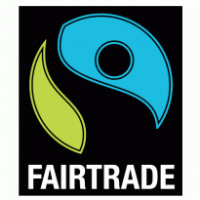 The following description is taken from a Fairtrade Foundation leaflet entitled ‘What is Fairtrade?’
The following description is taken from a Fairtrade Foundation leaflet entitled ‘What is Fairtrade?’
Many farmers and workers in developing countries struggle to provide for their families. Poor market access and unfair trade rules often mean that the price they get for their crop does not cover the cost of production. They face the global challenges of food price rises and climate change too.
You will find this label, the FAIRTRADE Mark, on thousands of products from coffee to fresh fruit, as a guarantee of a better deal for people and planet.
Under Fairtrade, farmers receive:
Agreed stable and sustainable prices
An extra payment (a ‘premium’) to invest in their community
As part of the agreement, farmer groups must be democratically organised and meet environmental standards. These include careful use of chemicals, looking after soil and water sources and respecting nature.
Who is behind Fairtrade?
The Fairtrade Foundation is the independent non-profit organisation in the UK that licenses use of the FAIRTRADE Mark on products in the UK in accordance with internationally agreed Fairtrade standards. We also raise awareness of Fairtrade and trade justice issues in schools, businesses, faith groups and local communities. The Foundation is part of an international network of organisations that are members of the standards setting, certification and producer support body Fairtrade International (FLO). You can find out more about FLO’s work at www.fairtrade.net
(Reproduction of the FAIRTRADE Mark by kind permission of the Fairtrade Foundation.)
For further work on fair trade production of tropical crops, the reader is referred to the interviews with Didier Leitón Valverde and Nela Perle, both of which are in the Costa Rica section of the Interviews page.